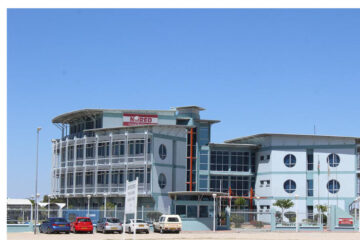Niël Terblanché
The secretary to the Cabinet, George Simataa, has issued a call to action, highlighting significant challenges in public service delivery within the country’s institutions of higher education.
In a statement, Simataa said that these challenges require collaborative efforts from all Namibians, not just the institutions themselves.
Simataa addressed concerns about the quality and appropriateness of courses offered by various higher education institutions.
He stressed that resolving these issues demands a collective approach, involving all stakeholders in the education sector.
Simataa’s response follows a public debate regarding the roles and course offerings of the International University of Management (IUM) and the Namibia University of Science and Technology (Nust).
He clarified that the courses at these institutions are indeed registered with the National Council for Higher Education (NCHE), countering claims that they were not.
Simataa acknowledged that, while IUM is a registered private higher education institution capable of offering science and technology programs, the government remains committed to advocating for high standards in higher education.
“While IUM may offer science and technology programmes as claimed, it is important to also understand that the government will not shy away from pushing for quality higher education,” he said.
He went on to say that although Nust has made significant strides in enhancing its science and technology programs, there is still room for improvement.
“I am fully aware that Nust has since elevated its science and technology programmes. However, more can be done to increase the enrolment rates in those fields and introduce more science and technology programmes,” said Simataa.
The statement highlighted the difficulties faced by private higher education institutions like IUM in offering accredited science and technology courses.
These challenges include inadequate infrastructure, a lack of dedicated staff, insufficient software resources, and issues with meeting admission requirements.
“Offering accredited science and technology programmes has proven to be difficult for private higher education institutions due to a lack of adequate infrastructure, dedicated staff members, software, and non-adherence to admission requirements,” Simataa said.
Simataa urged the NCHE to ensure that all tertiary institutions adhere to their mandates and offer courses accordingly.
Despite IUM’s registration for management courses, he pointed out that it currently offers science and technology courses, which are outside of its primary mandate.
Similarly, he pointed out that Nust shouldn’t be offering management courses given its mandate to concentrate on science and technology.
“These are serious public service delivery challenges that need attention,” he said.
During the annual general meeting of state-owned enterprises held in Oshakati last week, Simataa reiterated the government’s commitment to maintaining the quality of higher education as stipulated in the Higher Education Act.
He emphasised the importance of ensuring that all tertiary institutions align their course offerings with their designated roles and the overall educational framework of the country.
Simataa stressed that while private institutions face numerous challenges in providing accredited science and technology programs, the government will continue to advocate for high educational standards and support institutions in overcoming these obstacles.




